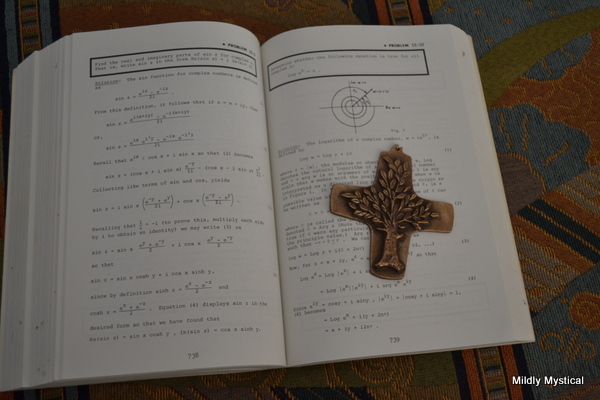On February 4, Bill Nye (“the science guy”) and Ken Ham (of Answers in Genesis) will meet at the Creation Museum in Petersburg, Kentucky, to debate the question of the world’s origin. At least that’s how the debate is billed. But the real fight is less about what happened eons ago than about what’s important now.
Advocates of creationism are concerned about the authority of scripture. And for something to be authoritative, it must be true. So those for whom scripture is important are naturally concerned with it being true. Of course, there are different ways to express what is true—through poetry, metaphor, myth, drama, literature, music, art, and more. But in our culture we tend to equate truth with scientific fact. To our detriment, we often treat science as the single measure of what is unassailably true.
This is how the waters get muddied: authority=truth=science.
But this equation leaves us impoverished. This is because science deals only in facts. Science can give us all kinds of valuable information. It helps us understand the world around us, invent new technology, and make our lives better. But science cannot assure us that our lives have meaning. It cannot give us hope or courage. It cannot give us a sense of belonging or of being loved. Science cannot ease our fears or teach us what it means to live a good life. Spiritual questions and longings are part of being human, but science is not designed to address this aspect of human existence. For grappling with spiritual issues, we need the kind of truth we find in religion.
There are two creation stories in the first two chapters of Genesis. They vary in terms of the order of creation and the focus of the stories. But the writers of Genesis placed them side by side because those contradictions do not matter. The stories aren’t there to talk about the chronology of the universe. How would that help us? These stories have something more important to convey: that creation is good, that we are placed on earth by a loving God who cares for us and wants us to have what we need. We need that kind of assurance, which religion can offer and science cannot. Scientific claims take nothing away from religious ones—they address different realms of inquiry.
The fear is that if our culture accepts the scientific explanation of creation, then we are rejecting the divine message in Genesis. But these two ways of considering our origins are not in competition. Science is not fit to answer questions about the meaning of our lives. Religion is not equipped to address the physics of the universe.
Nothing is gained for science in denigrating the human search for meaning. Nothing is gained for religion in denying the discoveries that science has gained. People need both.
It’s interesting that Nye is makes something of a moral argument for taking on the difficult role of participating in this debate at a potentially hostile venue. His concern is that children be able to learn science. As he told NBC news:
“We’re just trying to change the world here, and draw attention to these forces in our society that are trying to get creationism in science textbooks. My argument is, this is bad for the country, bad for our economy. We can’t raise a generation of science students who are not scientifically literate.”
The Bible is not made to be a science textbook. Neither is a science textbook equipped to serve as a Bible. They don’t undermine each other, at least they don’t have to. There is no reason why these areas of human endeavor cannot co-exist.


Comment